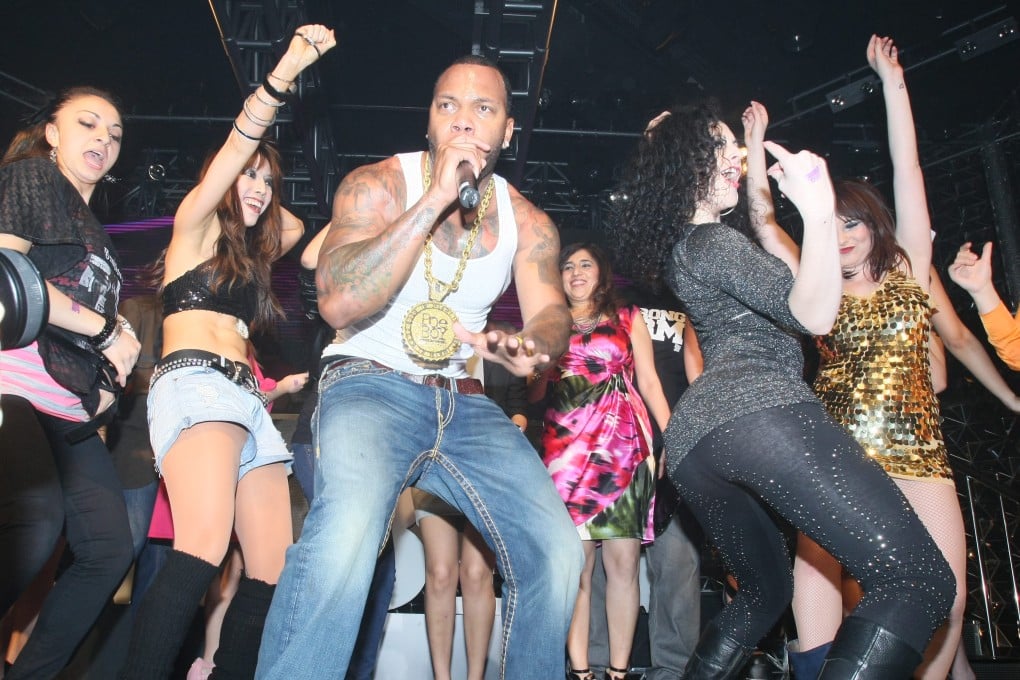
Who dat girl?' Flo Rida raps as he points to the women flocking around the stage at the newly opened Club Cubic in Macau. 'Where my sexy girls at?' he adds for emphasis.
The champagne is flowing endlessly at the opening night of the 30,000-sq-ft nightclub at the City of Dreams casino in Macau, and the 31-year-old's well-rehearsed routine has everyone - and not just the women - shrieking along in a frenzy.
Considering that the rapper had arrived just hours earlier after a prolonged layover in Vancouver, Flo Rida is putting on a surprisingly passionate performance, complete with his de rigueur hat, sunglasses and gold chain. Rap purists, however, might question the prolonged siren and cannon sound effects that follow every song, and the constant self aggrandising. Nonetheless, it's this shrewd sense of promotion that has served Tramar Dillard well, garnering him a slew of top awards, two entries in the Guinness World Records and three hit albums since he burst on the scene in 2006.
Backstage, surrounded by a counter filled with booze, a couple of giggly, dolled-up women, bodyguards and management types, Dillard's story comes out in reserved terms. Born in the projects in Carol City, Florida, he was the only son raised by his single mother in a household filled with seven sisters. 'In the projects, it was just drug dealing, killing and everything like that. My mum always told me that 'You can be in it, but you don't have to be of it',' he says in a tone that bears little trace of emotion. 'Even just trying to go outside and make it in the music business was very competitive. A lot of times you get shut down. I got shut down a lot of times, but I never gave up. Those are some of the obstacles I faced.'
The young Dillard joined several amateur rap groups before going on to study business management at the University of Nevada, Las Vegas for a couple of years. But he was set on becoming an international artist and the music he was hearing in his head drowned out the voices of his professors. 'I had already done a lot of shows with people who had names in the business and they would always tell me 'Man, you've got to just push harder.' That's what motivated me.'
His big break came in 2006 when he was signed to the Florida-based independent label Poe Boy. Dillard was soon working with artists such as T-Pain, Trick Daddy and Rick Ross. That led to Low, his first duet with T-Pain, which topped the pop charts. From there, several singles with rappers such as Black Eyed Peas frontman will.i.am, Timbaland and Sean Kingston followed.